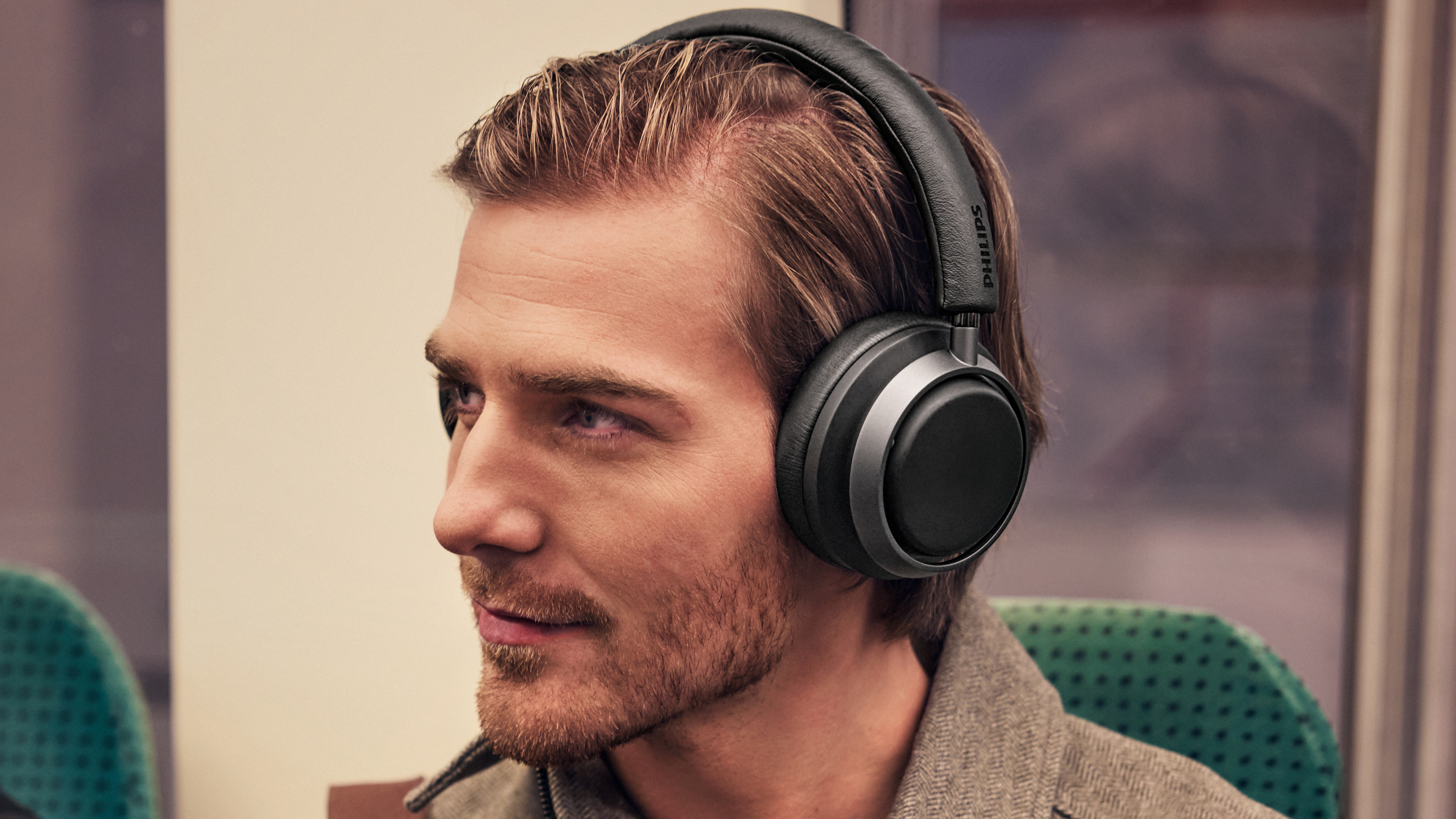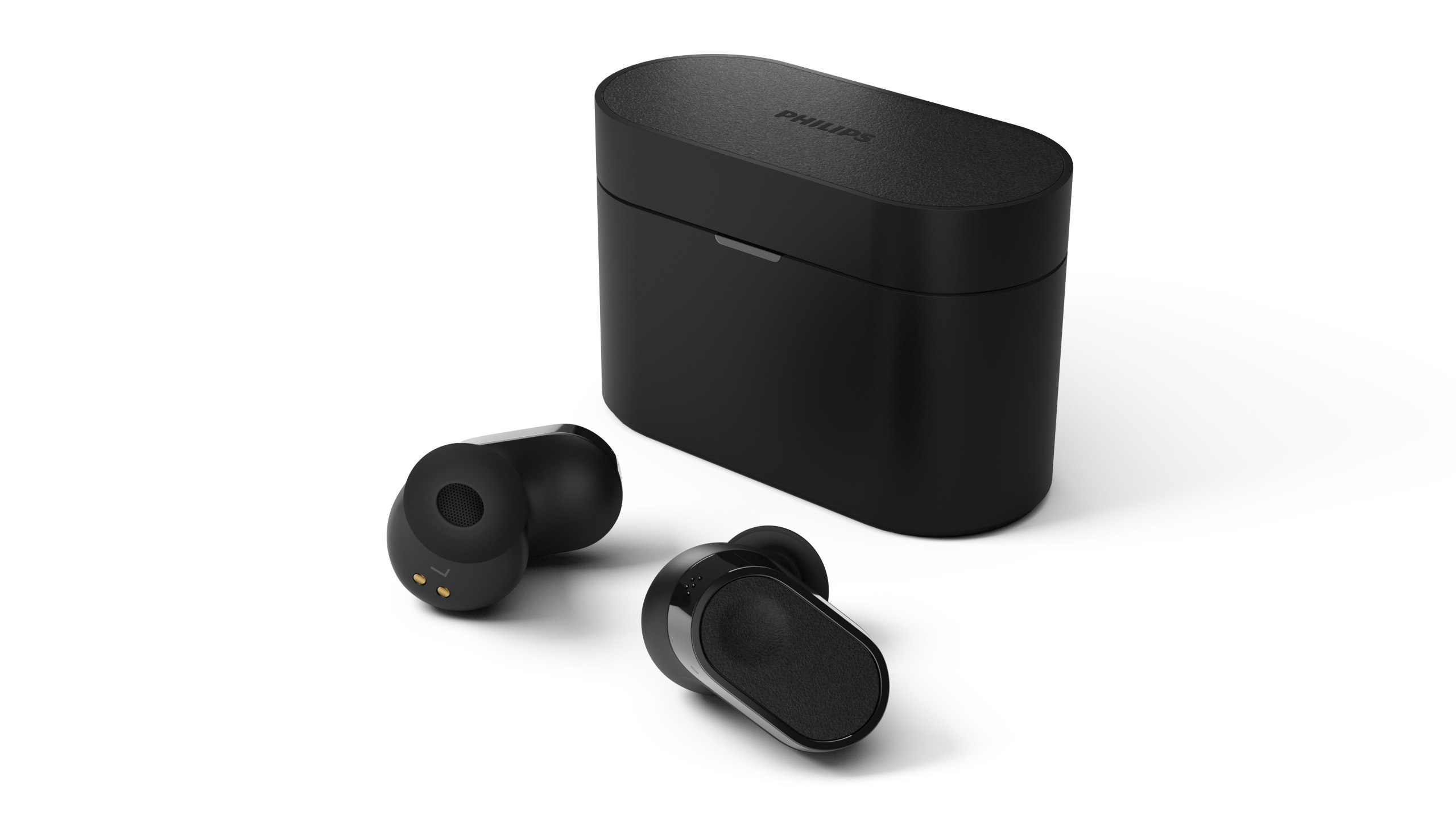Philips' new Hi-Res wireless headphones are ready for next-gen Bluetooth
New Fidelio Premium models feature Bluetooth 5.3 along with Auracast and LE audio

Philips has taken the wraps off two new premium headphones that feature cutting-edge Bluetooth LE and Hi-Res Audio tech.
The all-new Fidelio L4 over-ears and Fidelio T2 true wireless earbuds both feature the latest Bluetooth 5.3 standard as well as future-proofed LE Audio transmission, while also bringing support for Auracast and the LC3 new codec that is said to improve both sound quality and battery life.
It’s a best-of-all-worlds situation, with the two new headphones also compatible with Sony’s LDAC codec, which can be used with Android phones, and appears on that company's own Sony WH-1000XM5 headphones and Sony WF-1000XM4 earbuds.
LC3 brings more efficient compression and decompression of audio data, allowing Bluetooth wireless chips to do their thing while drawing far less power, while also allowing for higher bitrate audio to be transmitted and received. LDAC meanwhile allows you to stream high-resolution audio up to 32-bit/96kHz over Bluetooth at up to 990kbps.
The new L4 cans bring active noise cancellation via a four-mic array that’s positioned to the rear of the earcup to prevent wind distortion.
There’s a bespoke 40mm driver featuring graphene coating which Philips claims reduces distortion for cleaner mid and high-frequency performance, while Hi-Res Audio playback is meanwhile also available via the supplied 3.5mm mini-jack cable or via USB-C.
Battery life for the L4 is an impressively lengthy 50 hours of playback – with a claim of 40 hours when noise cancelling is engaged, while a quick charge of 15 minutes will give you five hours of playback. That's not quite as much as the class-leading Sennheiser Momentum 4 Wireless headphones (60 hours), but it's better than you'll find from the likes of Bose or Sony.
Get daily insight, inspiration and deals in your inbox
Sign up for breaking news, reviews, opinion, top tech deals, and more.
The Fidelio T2 brings a host of improvements over the original T1 in-ears, with a 40 per cent smaller charge case and 20 per cent smaller buds.
There’s an IPX4 splash proof rating and a surpassingly large 9.2mm graphene coated dynamic driver, while each earphone boast three mics, two being used for noise cancelling which is used in conjunction with bone conducting tech for improved call quality. The T2’s can run for nine hours on a full charge, with the case offering a further 27 hours of playback when noise cancelling is used – this is up there among the best true wireless earbuds for battery life.
Pricing and release dates for these headphones hasn't been confirmed yet, but expect them to be more at the premium end of the market.

Analysis: Next-gen connectivity is officially here
It’s taken a while, but the opening weeks have made it clear that 2023 is set to be the year of wireless Hi-Res Audio and LE Audio connectivity – at least where new headphones are concerned.
Coming hot on the heels of the incredibly well-specced, yet competitively priced Earfun Air Pro 3, we’re now seeing the start of what looks set to be a deluge of headphones that support the LC3 codec.
There’s still the issue that mobile devices are holding up matters, with very few phones or music players supporting LC3 or LDAC at this point in time – for many devices, it could be just a software update that changes that.
What’s not in doubt is that in our testing, both codecs offer a marked rise in fidelity over standard Bluetooth streaming, while the class of 2023 mobile handsets that are on their way will likely widely support both formats.
While you wait for the full TechRadar reviews of the Fidelio L4 and Fidelio T2, why not check out more of the best noise-cancelling headphones and best noise-cancelling earbuds.
Kevin Lynch is a London-born, Dublin-based writer and journalist. The author of Steve Jobs: A Biographic Portrait, Kevin is a regular feature writer for a number of tech sites and the former Technology Editor for the Daily Mirror. He has also served as editor of GuinnessWorldRecords.com and has been a member of the judging panel for the BAFTA British Academy Video Game Awards. Alongside reviewing the latest AV gear, smartphones and computers, Kevin also specialises in music tech and can often be found putting the latest DAWs, MIDI controllers and guitar modellers through their paces. Born within the sound of Bow Bells, Kevin is also a lifelong West Ham fan for his troubles.
